Nick Garrie
Jardim da Boavista, 2012
As a 20-year old Nick Garrie, an Englishman with a Russian father and a Scottish mother, recorded his debut album “The Nightmares Of J.B. Stanislas” in Paris. He had signed a deal with French label DiscAZ, who threw in a 52-piece orchestra for the recordings, and everything was set for the release. Yet Nick’s prime supporter, label boss Lucien Morisse, took his life just a few days before the release date, and the album never got the audience it deserves. Disappointed, Nick turned his back on the music business, managed a Swiss ski ressort and a ballooning company, or worked as a teacher. Every few years, though, he put out records under different names, hitting a surprise #1 in the Spanish charts in 1984 as Nick Hamilton. Among collectors the rare copies of “J.B. Stanislas” became more and more sought after over the years. Finally, in 2005 (on Rev-ola Records) and 2010 (on Elephant Records) CD reissues of the album were put out. At this year’s Primavera Sound Festival in Barcelona and Porto Nick Garrie performed his debut in its entirety for the very first time to much acclaim from audience and critics. We met Nick just before his show in Porto in a small park close to the landmark Casa da Musica. Sitting on a war heroes monument, Nick performs beautiful versions of „Wine and Roses“ and „Deeper Tones of Blue“.
- Camera
- Michael Luger
- Sound Recording
- Sarah Brugner
- Post production
- Michael Luger
- Photography
- Sarah Brugner
- Artist
- Nick Garrie
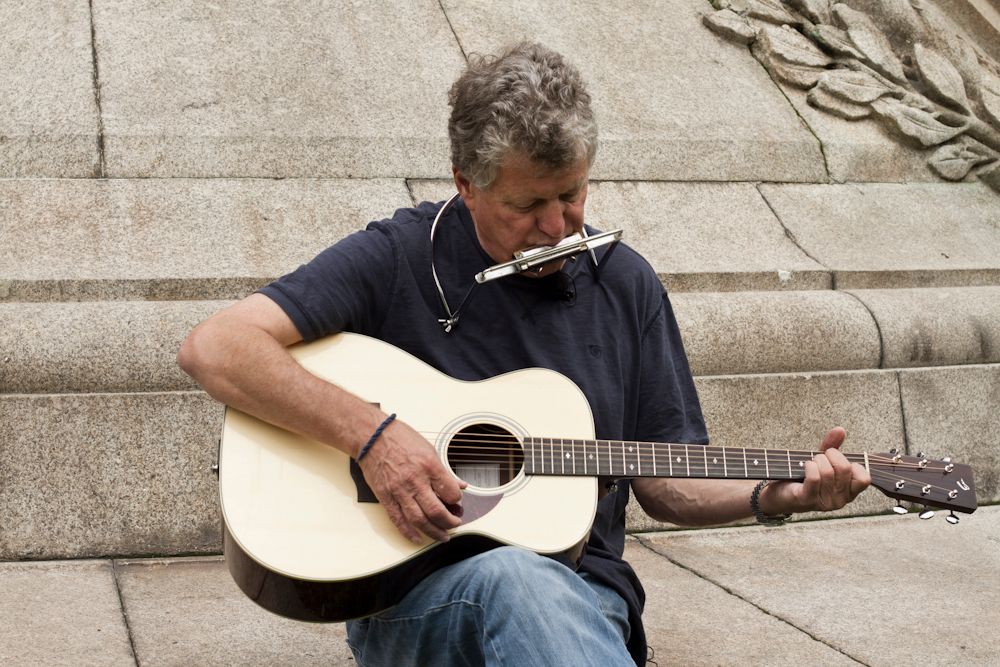
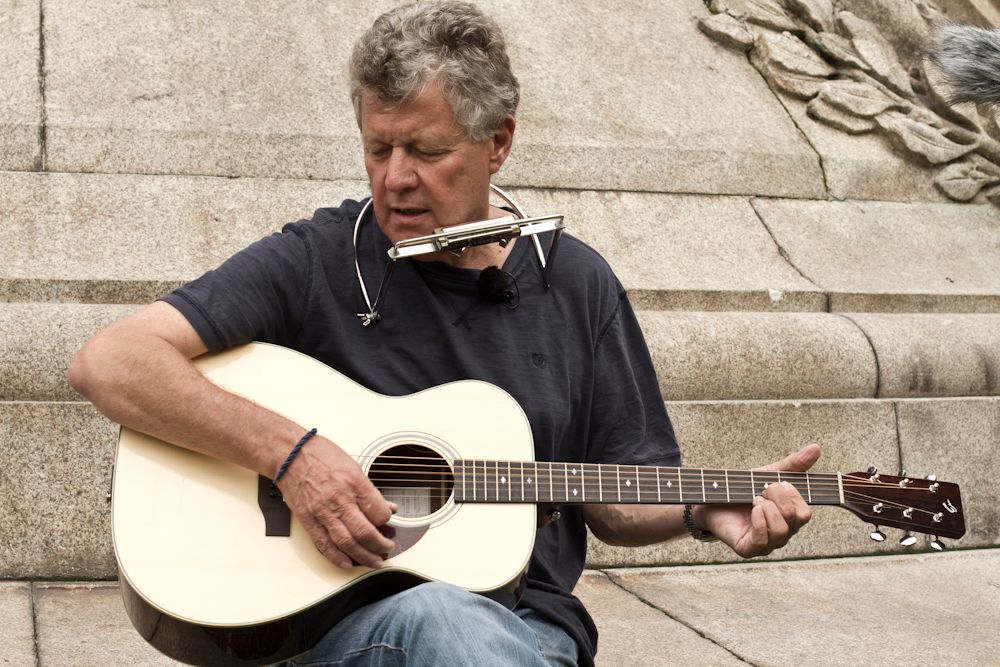
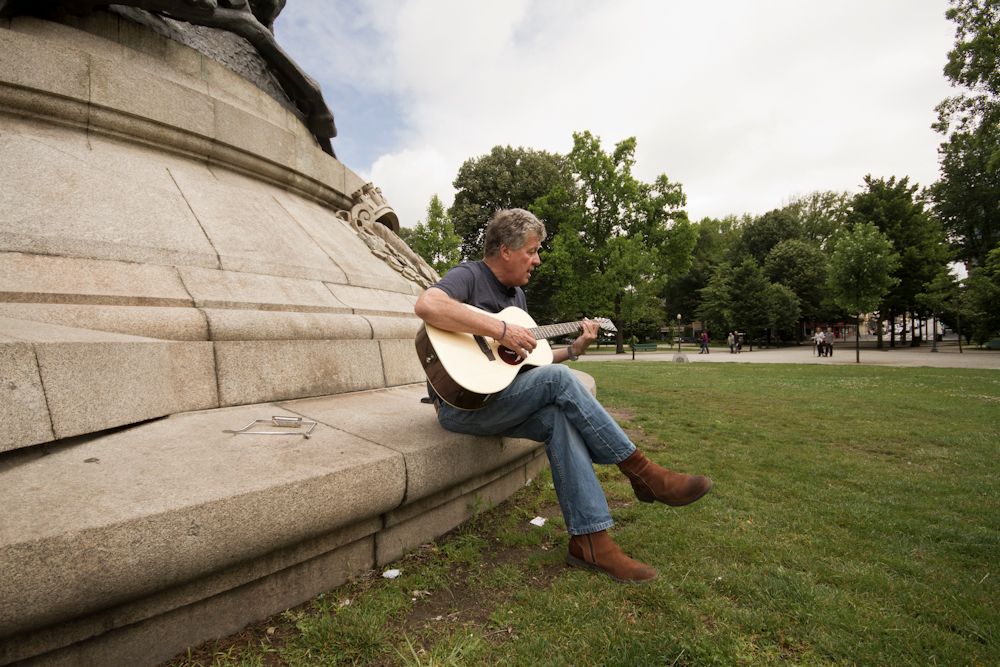
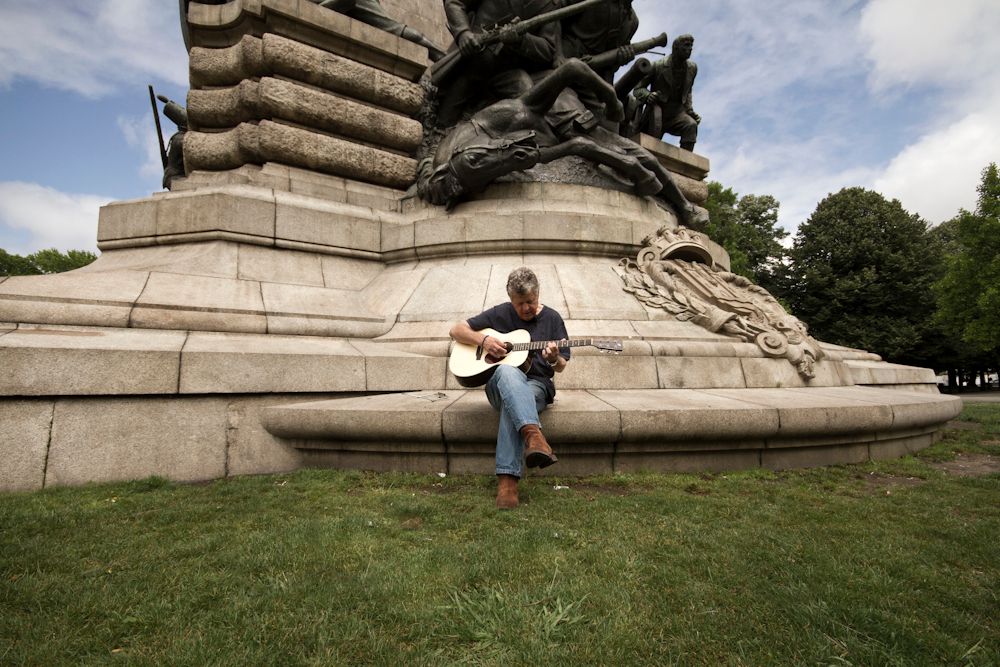
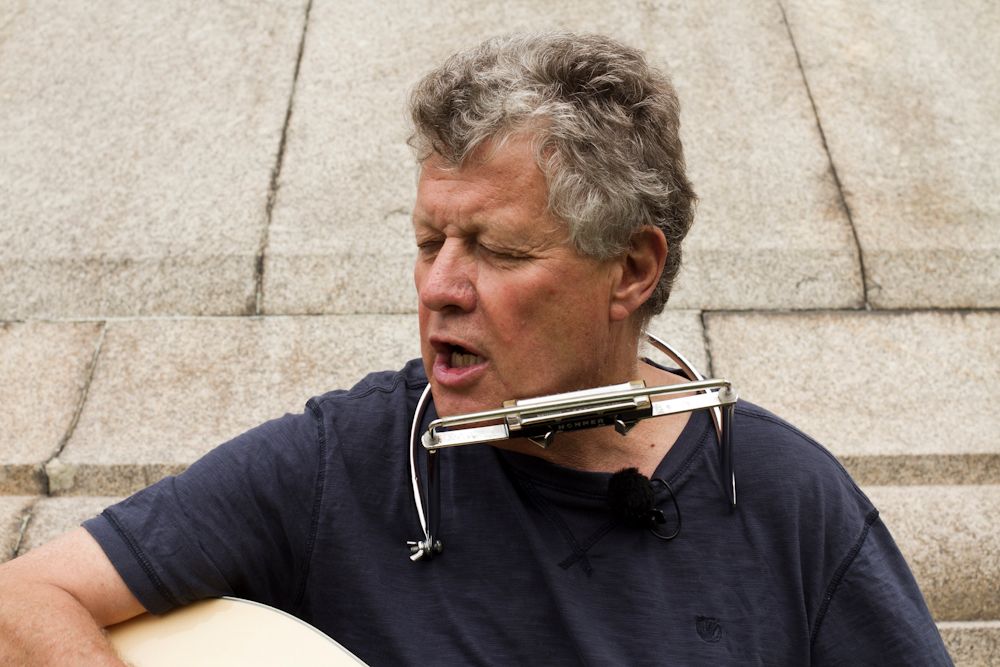
Jardim da Boavista
Jardim da Boavista is a small park encircled by a roundabout in the Boavista district of Porto. The park is dominated by the 45-metre-high monument to heroes of the Peninsular War in its centre. Despite the heavy traffic on the surrounding streets sitting down on the lawn or under the many trees is pleasant and relaxing, especially before or after a visit to the stunning Casa da Musica on the northwestern edge of the square. The iconic concert hall was designed by Dutch architect Rem Koolhaas and opened in 2005. Located a bit off the city center (but connected by a tram line) Casa da Musica is supposed to revitalize the area and put Porto on the map of modern architecture.